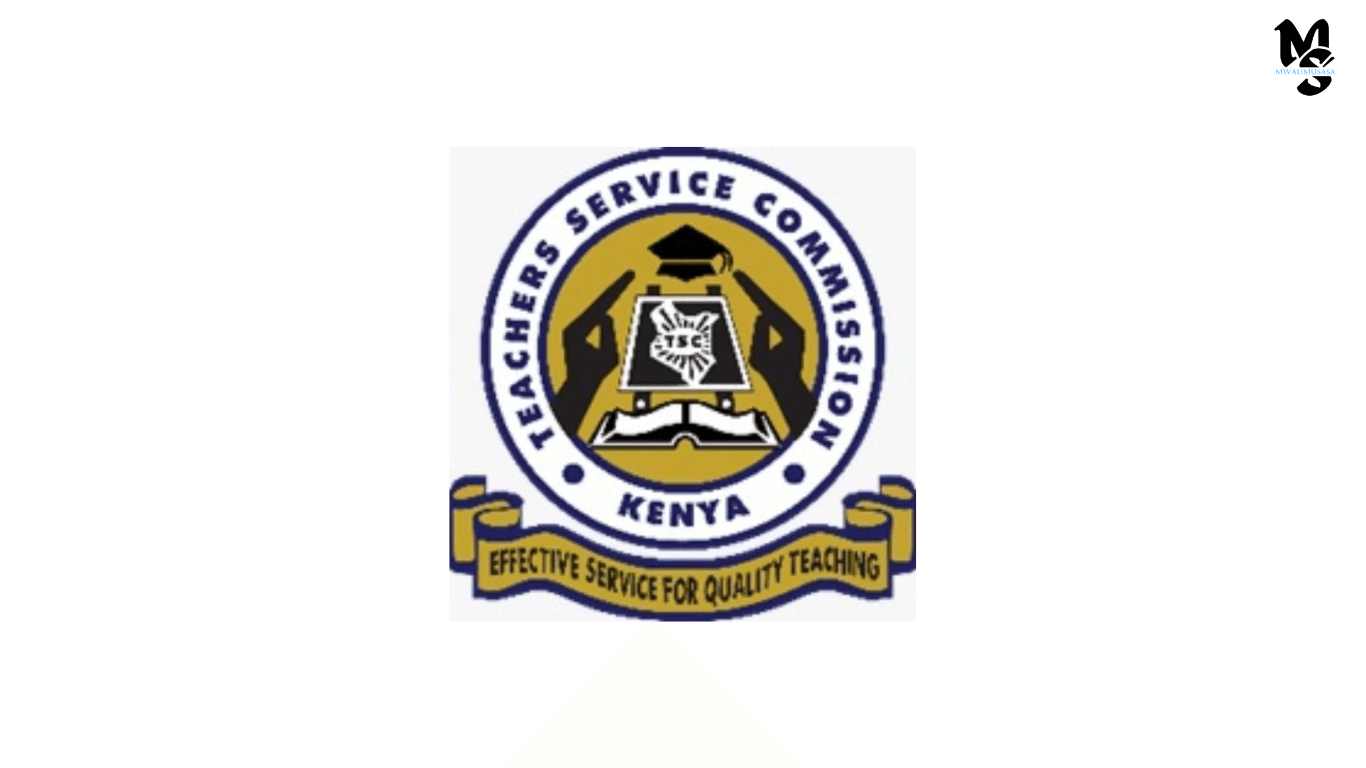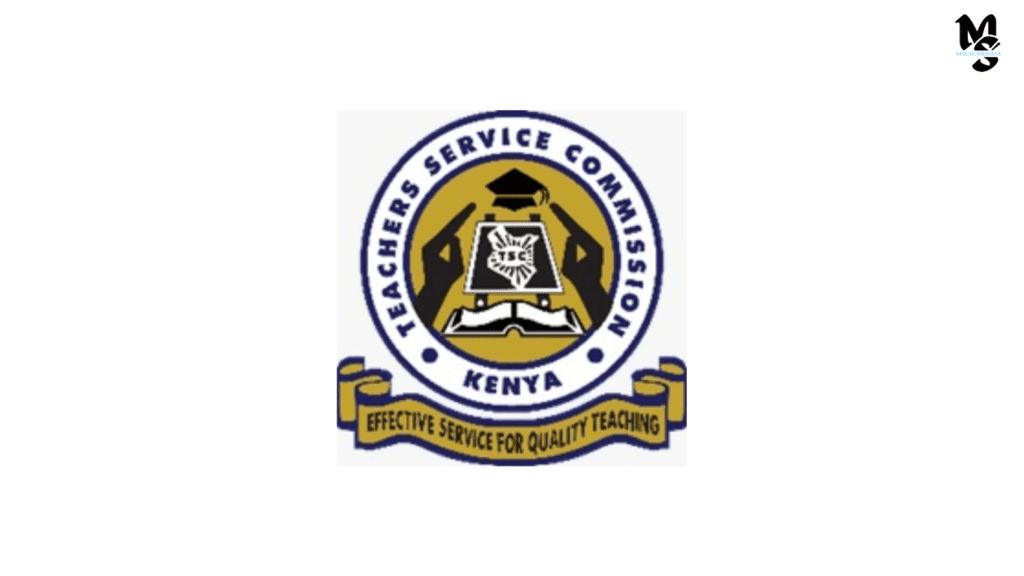Breaking News:TSC Kenya to Replace 5,030 Primary School Teachers Lost to Attrition and Recruit 20,000 New Interns

A logo of the TSC

The recent announcement by the Teacher Service Commission (TSC) of Kenya marks a significant step towards addressing the pressing issue of teacher shortages in the country’s education system. The commission revealed plans to replace 5,030 primary school teachers who have been lost due to natural attrition. This decision is a timely intervention in light of ongoing challenges faced in the Kenyan education sector, such as high teacher attrition rates and a growing student population. The addition of 20,000 teaching interns also emphasizes the importance of fostering new talent within the teaching profession, thereby enhancing the quality of education in Kenya.
The replacement of teachers through the TSC recruitment initiative highlights the commitment of the government to maintain an adequate teacher-student ratio Kenya. This is especially crucial in ensuring that classrooms are adequately staffed, which in turn supports better learning outcomes for students. According to recent reports, the high teacher attrition in Kenya has led to increased workload among existing educators, which undermines the overall effectiveness of teaching. The introduction of new interns, therefore, not only promises to alleviate some of this burden but also offers young professionals invaluable experience through Kenyan teaching internships.
The TSC’s timely move is also indicative of the broader strategy aimed at improving the quality of education in Kenya. This strategic recruitment aligns with the need for updates within the Kenyan education sector, proactively addressing the gaps created by the loss of experienced teachers. As the TSC merit list 2024 is anticipated, the focus on enhancing educational infrastructure will enable a more stable and supported environment for educators and students alike. Consequently, the commitment to adding more teaching professionals as part of the initiatives reflects a forward-thinking approach to developing the education landscape in Kenya.
Understanding Teacher Attrition and Its Impact
Teacher attrition refers to the phenomenon where teachers leave the profession before retirement, a crucial issue in the Kenyan education sector. It manifests as natural attrition, which includes various factors such as retirement, career transitions, and personal circumstances, ultimately contributing to a notable gap in staffing within schools. This departure of educators can significantly affect the quality of education delivered, as the trend creates vacancies that need immediate attention to maintain the desired student-teacher ratio in classrooms.
Retirement is often a major contributor to teacher attrition, particularly as experienced educators complete their careers. Additionally, teachers may seek new opportunities that better align with their career aspirations or family commitments, leading to career shifts. Whatever the cause, the resulting vacancies can hinder the ability of educational institutions to provide quality education in Kenya. The TSC Kenya recruitment initiative aims to address these gaps by introducing measures that will not only fill the current vacancies but also enrich the teaching force with new talents.
The impact of teacher attrition on the education system is profound. With a rising demand for primary school teacher replacement, the need to swiftly onboard educators becomes vital to ensure that children receive an uninterrupted learning experience. Higher teacher attrition worsens the existing teacher-student ratio in Kenya, often leaving many classrooms underserved and overpopulated. In response, Kenyan education authorities, alongside the TSC, are working diligently to create policies that capitalize on new teaching jobs in Kenya and internships to attract fresh graduates into the teaching profession.
In light of the recent developments in the Kenyan education sector updates, the TSC’s merit list 2024 reflects collective efforts to rejuvenate the teaching workforce while tackling the challenges posed by teacher attrition. This nurturing of a robust educational environment not only fulfills the immediate staffing requirements but also lays the foundation for sustainable educational practices that will serve the needs of students in Kenya.
Details of the Replacement Plan for 5,030 Primary School Teachers
The Teachers Service Commission (TSC) has outlined a comprehensive plan to replace 5,030 primary school teachers across Kenya, aimed at addressing the pressing challenges posed by teacher attrition in the Kenyan education sector. This initiative not only addresses the vacancies created by the departure of teachers but also strives to enhance the overall quality of education in Kenya. The TSC recruitment process will be governed by a well-structured merit list, specifically the TSC merit list 2024, which has been designed to ensure transparency and fairness in the selection of new teachers.
In executing the replacement plan, subcounty directors will play a pivotal role. They are tasked with collecting and providing accurate data on existing vacancies within various schools, which is critical for informed decision-making during the recruitment process. By supplying this data, subcounty directors help ensure that teaching positions are filled in a manner that aligns with the unique needs of different schools, particularly in scenarios where the teacher-student ratio in Kenya needs to be optimized.
Furthermore, the anticipated timeline for the replacement exercise has been strategically outlined to facilitate a smooth transition. While exact dates are subject to confirmation, stakeholders can expect the recruitment process to commence soon, enabling schools to integrate new teachers without significant delays. This is particularly relevant given the impending need for qualified professionals as part of the wider new teaching jobs in Kenya initiative. In conclusion, this replacement plan represents a crucial step towards revitalizing the teaching workforce while striving for an educational environment that can effectively meet the demands of quality education in Kenya.
Recruitment of 20,000 New Interns
The Teachers Service Commission (TSC) of Kenya has embarked on an ambitious initiative to recruit 20,000 teaching interns to bolster the education sector. This strategic move aims to address the persistent issue of teacher attrition in Kenya, which has resulted in an imbalance in the teacher-student ratio across many public schools. These interns will play a pivotal role in providing support to full-time teachers, thereby enhancing the overall learning environment for students.
The new teaching jobs in Kenya aim not only to fill vacancies caused by retirements and resignations but also to inject fresh talent into the educational system. The interns will assist in various capacities, including planning lessons, tutoring students, and managing classroom activities. This hands-on experience is designed to build their teaching skills while simultaneously contributing to the delivery of quality education in the country. By integrating these interns into the classroom, the TSC aims to improve educational outcomes and create a more robust framework for the development of future educators.
It is important to note that the recruitment process for these internships will coincide with the ongoing TSC Kenya recruitment for replacing 5,030 teachers. The concurrent exercise demonstrates TSC’s commitment to sustaining educational standards and maximizing the impact of its initiatives. Subcounty directors will have a crucial role in overseeing the recruitment process, ensuring that the selected interns meet the qualifications and align with TSC’s criteria for effective teaching. This streamlined approach not only addresses the immediate requirements of schools but also sets a foundation for a more cohesive and supportive educational ecosystem.
In addition to aiding full-time teachers, the internship opportunities provide several benefits to the interns themselves. They gain invaluable experience that enhances their employability and prepares them for future roles within the Kenyan education sector. Overall, this initiative represents a critical step toward addressing teacher shortages and ensuring that the educational needs of Kenyan students are effectively met.
Benefits of This Recruitment Initiative for Kenyan Schools
The recent TSC Kenya recruitment initiative, which aims to replace 5,030 teachers while introducing 20,000 teaching interns, presents numerous advantages for the Kenyan education sector. One significant benefit is the potential reduction in teacher-student ratios across schools. With an elevated number of educators, classrooms can become less crowded, enabling teachers to offer more individualized attention to each student. This is paramount in addressing the current challenge of inadequate attention often experienced in large classes, fostering a more conducive learning environment that supports quality education in Kenya.
Moreover, the influx of new teaching staff can significantly alleviate the workload of existing teachers. With the current phenomenon of teacher attrition in Kenya, many educators are overstretched, impacting their efficiency and, ultimately, their ability to engage meaningfully with students. By bringing in fresh talent, the initiative can assist in distributing responsibilities more evenly, enhancing overall job satisfaction among educators and promoting a healthier work-life balance.
Additionally, the introduction of teaching interns offers a unique opportunity for career growth within the teaching profession. These internships will serve as stepping stones for aspiring teachers, equipping them with valuable hands-on experience that is essential in today’s competitive job market. The TSC merit list 2024 will likely include many of these interns as they progress, helping to create a strong pipeline of qualified educators for the Kenyan school system.
Furthermore, enhanced staffing levels can lead to improved student engagement. A more robust teaching workforce can employ innovative teaching strategies and facilitate diverse learning modes, ultimately increasing student motivation and participation. This initiative is not just a response to immediate staffing needs but a strategic move towards nurturing a dynamic educational environment that benefits both educators and students alike.
Challenges and Considerations
The recent initiative by the Teacher Service Commission (TSC) Kenya to recruit 5,030 replacement teachers and introduce 20,000 teaching interns brings forth several noteworthy challenges that need to be addressed for its successful implementation. A primary concern is ensuring that the recruitment process efficiently covers all geographic areas, particularly remote regions, where access to quality education Kenya remains a pressing issue. The logistical hurdles involved in deploying new teachers and tracking the deployment across various subcounties could impact the overall effectiveness of the initiative.
Moreover, while the influx of teaching interns is crucial to addressing the teacher-student ratio Kenya, retaining these new professionals is equally important. Strategies must be developed to support the growth and integration of interns and new teachers into the educational ecosystem. Without effective induction programs and mentorship opportunities, many could face overwhelming challenges, leading to early attrition. Teacher attrition in Kenya has been a concern, and effectively managing it necessitates a comprehensive support system to foster job satisfaction and professional development.
Funding and resource allocation are also significant considerations in this recruitment endeavor. It is essential to question whether the available resources can adequately empower both new hires and teaching interns. The allocation of funds should ensure not only competitive salaries but also the provision of necessary teaching materials, access to ongoing training, and professional support systems. By addressing these financial and logistical concerns, TSC Kenya can enhance the quality of the recruitment process and ultimately improve educational outcomes.
As TSC prepares for these changes, the focus on sustainability in teacher placement and support will play a critical role in shaping the future of the Kenyan education sector. Ensuring that both new teachers and interns feel valued and equipped will be essential in building a resilient educational workforce.
Implications for the Future of Kenya’s Education System
The Teacher Service Commission (TSC) of Kenya’s recent initiative to replace 5,030 teachers and introduce 20,000 teaching interns reflects a significant turning point in the Kenyan education system. This bold move underscores a commitment to enhancing the quality of education in Kenya. Given the high rate of teacher attrition in Kenya, the recruitment efforts are crucial for addressing staffing challenges in the educational sector. By replenishing the teaching workforce, particularly in primary education, the TSC aims to ensure that every student has access to qualified educators.
The implications of this recruitment initiative extend beyond immediate staffing needs. Integrating new teaching jobs into the system creates a more favorable teacher-student ratio in Kenya, thereby enhancing the overall learning environment. A manageable student-teacher ratio allows educators to provide more personalized attention to their students, which is essential for academic success. This initiative not only aids in replacing teachers who have left due to attrition but also helps to position the Kenyan education sector for future improvements in literacy rates and student outcomes.
Looking ahead, the TSC’s efforts may set a precedent for ongoing recruitment drives that prioritize retaining skilled teachers while also embracing fresh talent through teaching internships. Such steps are vital for strengthening the educational framework and ensuring that the Kenyan education system remains responsive to the evolving demands of its population. Furthermore, with the upcoming TSC merit list 2024, there is optimism about the potential for more targeted hiring based on merit and skills, which will contribute to the educational quality. In conclusion, these initiatives demonstrate a commitment to advancing quality education in Kenya, with promising outcomes for both students and the broader educational landscape.
Conclusion
The recent announcement by the Teacher Service Commission (TSC) of Kenya to replace 5,030 teachers alongside the recruitment of 20,000 teaching interns marks a significant stride towards enhancing the efficiency of the Kenyan education sector. This bold initiative addresses persistent challenges such as teacher attrition Kenya, which has hindered the quality of education in various institutions. By filling these critical gaps, the TSC aims to not only strengthen the teacher-student ratio Kenya but also ensure that learners receive adequate support throughout their educational journey.
This development comes at a time when the Kenyan education system is navigating various transitions and adjustments. With anticipated updates in the Kenyan education sector, it is crucial that strategic efforts like the TSC Kenya recruitment of both experienced teachers and fresh interns are prioritized. Such efforts are instrumental in fostering an environment where quality education Kenya can thrive, ensuring that students are equipped with the knowledge and skills necessary for their future endeavors.
The inclusion of teaching interns also presents a unique opportunity for new professionals to gain valuable experience in the classroom. The scheduled placement of these interns will not only serve to enrich the educational experience for students but will also contribute to the overall improvement of teaching methodologies across the board. It is anticipated that the upcoming TSC merit list 2024 will reflect the dedication required to achieve these goals, fostering hope for the future of education in Kenya.
As stakeholders in the education sector remain observant, the community can look forward to continued proactive measures from the TSC in addressing teacher shortages. By committing to filling existing vacancies and supporting the educational workforce, the TSC is taking critical steps toward fostering a sustainable and high-quality educational environment for all Kenyan students.







Which cretaria is used when carrying out replacement process and by which date is it supposed to commence
Thanks mwalimu for your feedback.
Replacement will be for those who left teaching profession for other greenery pastures or those who died.
Keep InTouch to find out when the advert will be available.